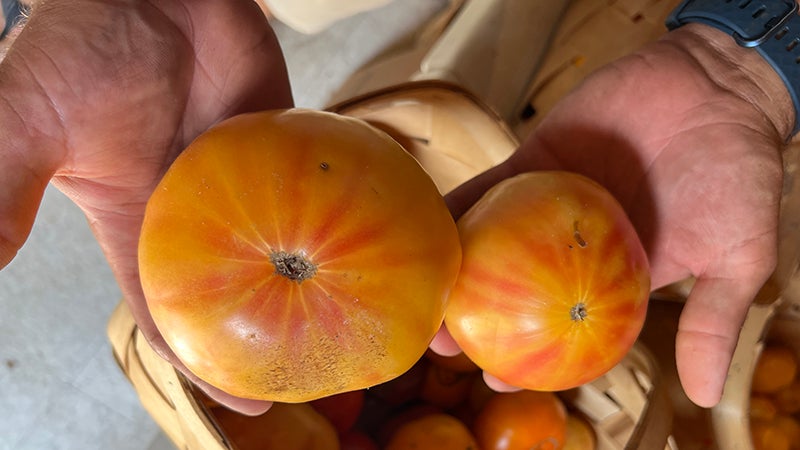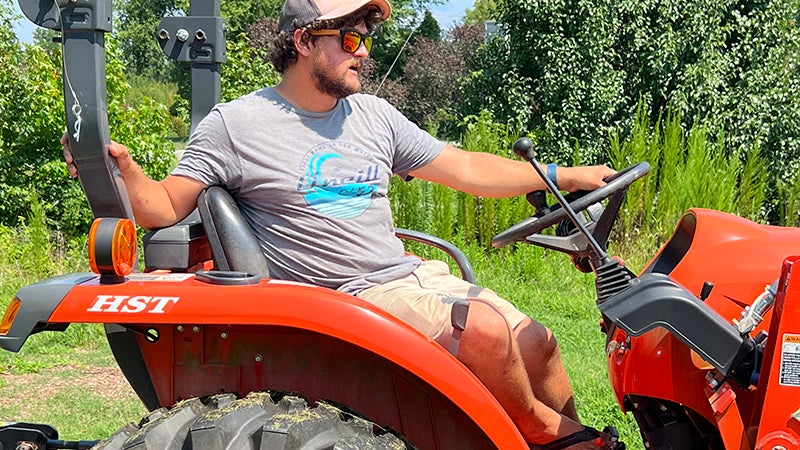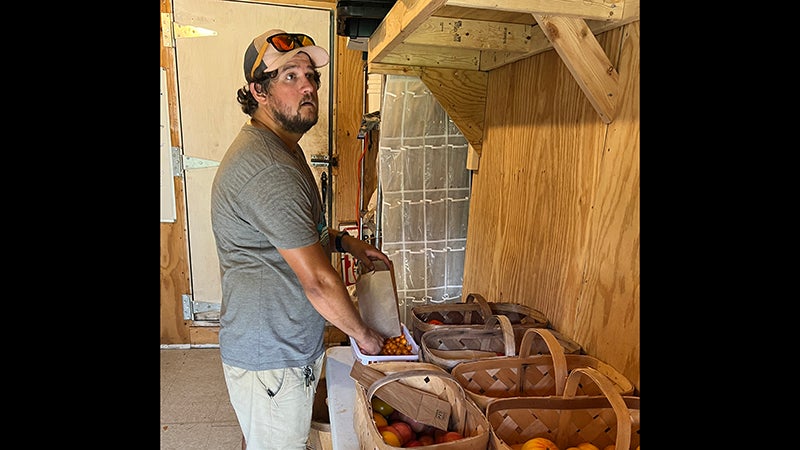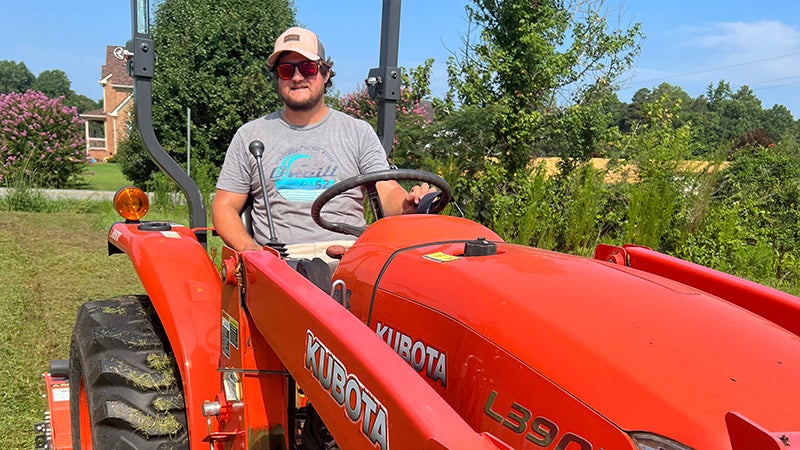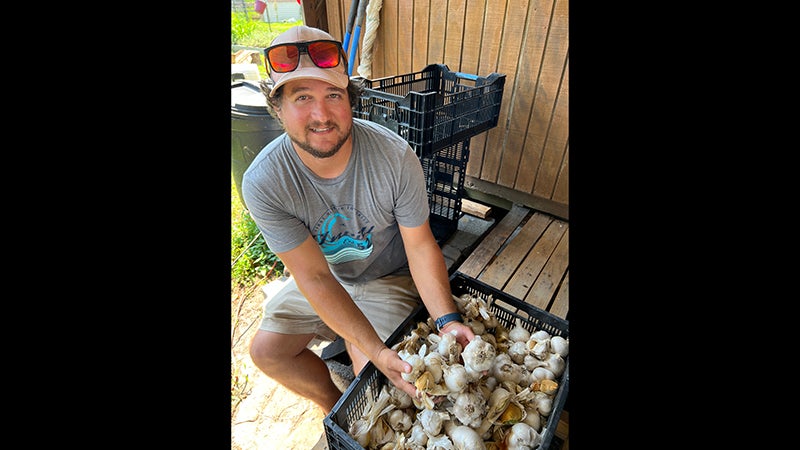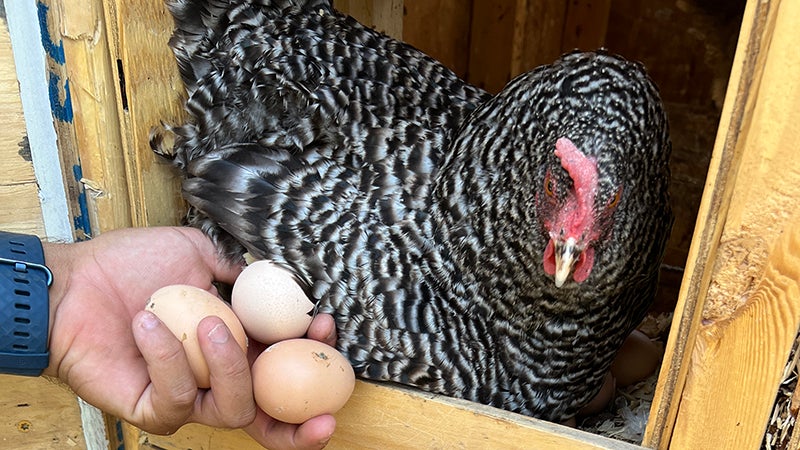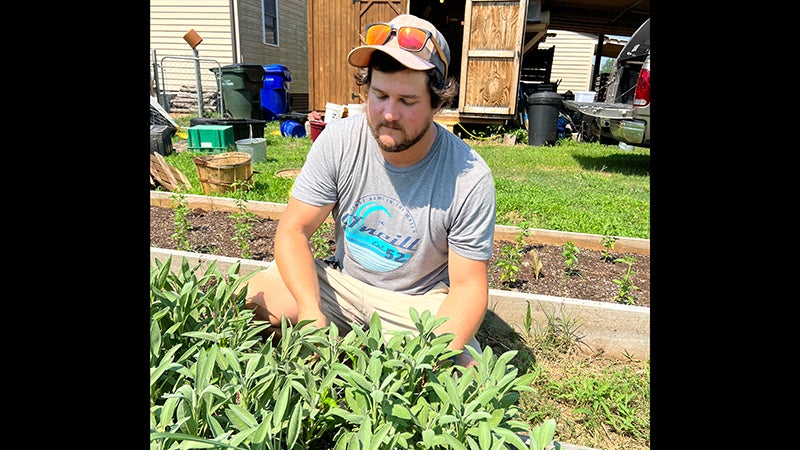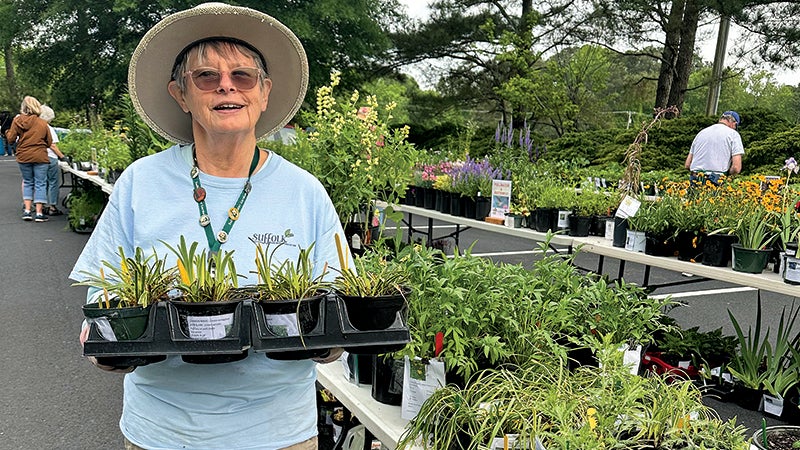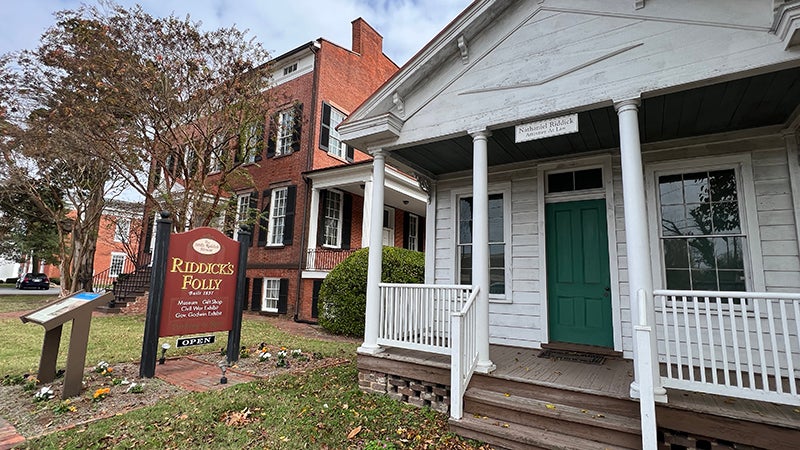Growing Sustainably – and Happily
Published 2:52 pm Wednesday, October 26, 2022
|
Getting your Trinity Audio player ready...
|
Suffolk organic farmer lives out his dream on Manning Road
Story by Phyllis Speidell
Photos by John H. Sheally II
As summer slips into autumn, farmers markets continue to lure shoppers seeking the perfect tomato, the freshest berries, the choicest potatoes and armfuls of garden greens. Among the growers displaying their fruits and vegetables, there might be one or two that advertise “organically” or “sustainably” grown.
Sounds good, sounds healthy, but exactly what does that mean?
David Carter, now in his third season producing sustainably grown vegetables and herbs at his Fritillary Farm on Manning Road in Suffolk, has spent the last 10 years learning and working with organic and sustainable growing practices. He is one of the many farmers who contribute to organic agriculture becoming one of the fastest growing segments of agriculture across the country, according to the Organic Trade Association.
Organic farming, Carter said, “is all about the health of the farm and maintaining environmental, social and economic sustainability.”
Often, “organic” refers to produce raised on farms that use biological or cultural controls to shield their crops from diseases and harmful pests.
Elizabeth Pittman, agricultural and natural resources Extension agent with the Virginia Cooperative Extension in Suffolk, added more detail, saying that definitions may vary but the U.S. Department of Agriculture National Organic Program notes: “Organic is a labeling term for food or other agricultural products that have been produced using cultural, biological and mechanical practices that support the cycling of on-farm resources, promote ecological balance and conserve biodiversity.”
According to Pittman, approved biological and cultural methods include, among others, tillage and pruning practices, non-synthetic fertilizer and pesticide sprays, fostering environments for predatory insects that control other insects that can damage crops, and planting disease-resistant varieties.
With few exceptions, farmers, such as Carter, who grow sustainably, following organic practices, still must be certified by a USDA-accredited agency to label their products as “organic” with the USDA organic seal. The extensive certification process can take up to a year or more.
“The certification process is long and expensive,” Carter said. “It would be worthwhile if I had 20 or 50 acres, but not for my 4 1/2 acres. In the last three years I’ve learned there is a fine balance between benefiting the overall health of the farm and making a profit. Becoming economically sustainable can be trial and error.”
Without official certification, however, he can and does sell his products as “sustainably produced.” According to Pittman, Carter has “a wealth of knowledge about organic production.”
So how does a man who grew up in Virginia Beach, surfing and enjoying the beach, become a farmer in Suffolk who hasn’t been on a beach in years?
Carter said that when he graduated from First Colonial High School, he knew he wasn’t ready for college. He enrolled in a few courses at Tidewater Community College and thinking, perhaps, something in the medical field might be a career possibility, he worked as a Sentara patient care representative. When that didn’t suit him, he found a job on a Pungo farm owned by J.D. Wilson, a sustainable farmer who grew and sold vegetables, flowers, fruits and herbs.
Carter enjoyed the work so much he started looking for ways to learn more about organic farming. He discovered that Central Carolina Community College offered an associate’s degree program in Agroecology and Sustainable Agriculture. The curriculum combined classroom courses in soil science, animal husbandry and more, with hands-on experience in sustainable agriculture, sustainable fuels and farm-to-table culinary programs.
There were many small farms in the area and the students interned on them, learning from the farmers.
“Central Carolina gave me a start, but I learned the most on the farms,” Carter said. “Everybody does things differently and they are always trying new things.”
When he graduated in 2014, he spent five months as a thru-hiker on the Appalachian Trail before working as a horticulturist at the Norfolk Botanical Gardens. He moved on to become a production manager at New Earth Farm, a 21-acre all-natural working and educational farm in Pungo. As his dream of owning his own farm grew, he took a job in shipyard scaffolding, 200 to 300 feet in the air, to earn enough money to make the dream a reality.
It was a tight real estate market, but in November 2019 Carter bought the Manning Road property and began creating his dream. He expanded and remodeled a shed into a walk-in cooler and prep area. He turned over the land, built a propagation greenhouse and tunnel greenhouses.
“People stopped to ask what was going on and seemed happy to know the farm would be here,” he said.
He hopes the area can attract more sustainable growers and develop a network within the farming community.
“I had a lot of help, advice and used equipment from other farmers,” he said. “The more farmers you have, the better.”
Carter’s farm produces a variety of crops — heritage tomatoes, arugula, salad greens, elephant garlic, onions, potatoes, lemon grass mint, lemon thyme, sage — while his flock of chickens produces 50 eggs a day. Rows of buckwheat, fennel and yarrow attract bees and wasps who help deter a major nemesis, the cross striped cabbage worm. Writer spiders spin webs on the rows on sun gold tomatoes, capturing pests that might feed on the fruit.
A smaller flock of Giant Pekin ducks help the chickens with fertilizing the soil, supplementing a large compost heap. Carter is still looking for a local horse or cattle farm that might become a source of manure.
After three seasons, he has three part-time employees and hopes to find someone who would fill an intern position at Fritillary Farm and learn as he did from hands-on experience.
At 34, Carter is well into creating his dream career. The farm is flourishing but, he says, remains relatively low-tech and difficult to leave for any length of time, even for a few days of fly fishing in the mountains. He sells most of his harvest to restaurants, especially farm-to-table specialists, across Hampton Roads and at farmers markets at the Norfolk Botanical Gardens, Ghent and the Old Beach Market in Virginia Beach.
Why did Carter name his farm Fritillary Farm? Unique names were hard to find and he recalled when he began studying organic agriculture, the first caterpillar he identified was one that would develop into a Fritillary butterfly, a beautiful orange butterfly black markings that happens to be a great pollinator and an apt name for a sustainable farm.


